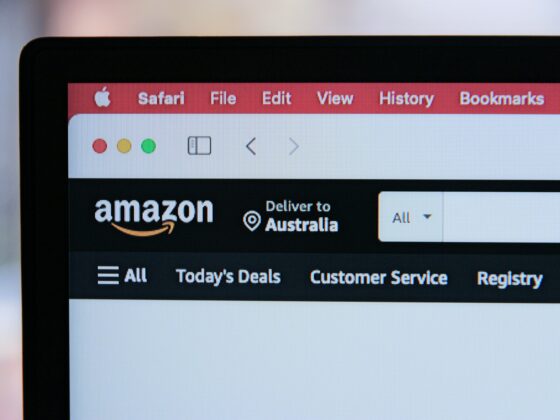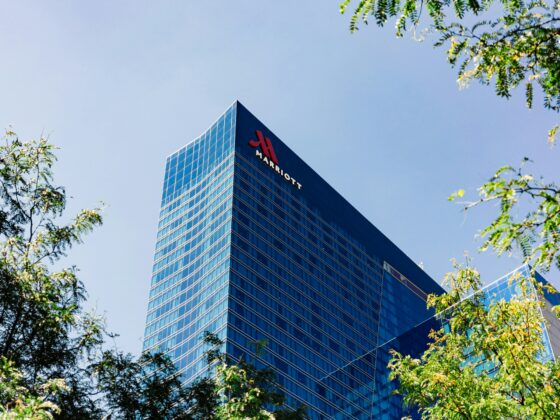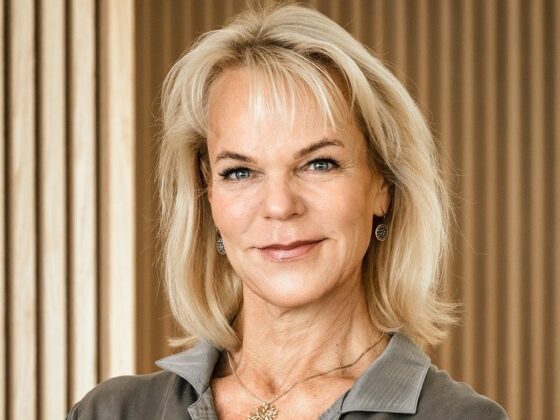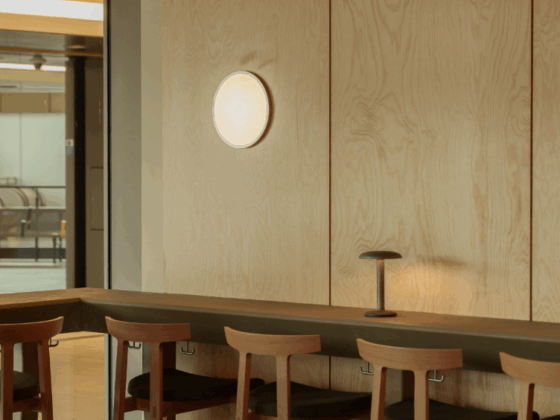Josiah (00:00.104): Jan and Jamie, thank you so much for taking time to talk. I have really enjoyed speaking to you both separately on the show earlier this year. We had the chance to chat in Nashville at the Hotel Data Conference and we were talking, saying, hey, each of us has podcasts. What if we got all the podcasters together just to talk about what was on our mind? What is going on? What are we excited about? What are we thinking about? So thank you both for taking the time to chat.
We are recording this on Friday, September 5th. The summer has wrapped up. I’m curious for both of you, is there a summer highlight that comes to mind? Something that was fun for you this summer? Maybe Jamie, I’ll go to you first.
Jamie (00:42.188): Yeah, I always sort of relate my summer highlights back to work. So we’ve been participating in what I would call climate tourism. Living down here in Atlanta, the goal is to spend as little time in Atlanta during the summer as possible. So my parents have retired and they’re up in Maine now for May through October, and we’re trying to spend more and more time up there as possible. So me and my family spent two weeks up there this year. My son now is going to a day camp up in Maine, which is just quintessential day camp, which is so much fun on a lake, learned canoe and archery and sail and all the sort of fun stuff. So we’re two years into that now and looking hopefully next year, three or four weeks up there. So yeah, that was definitely a highlight of getting to spend an extended period of time up there.
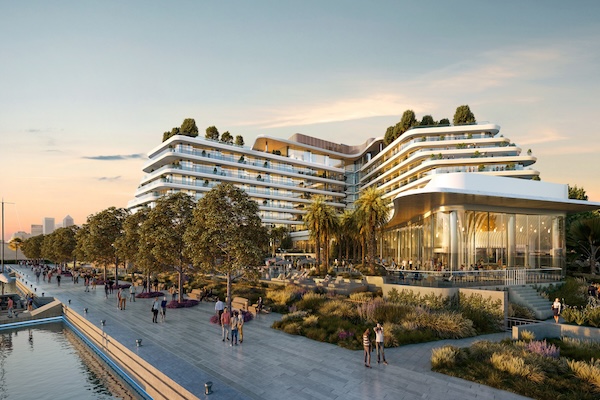
Josiah (01:43.23): Sounds so fun. What about for yourself, Jan?
Jan (01:46.048): Yeah, maybe a more extreme version of climate tourism, but we went to the Nordics. So I’m from Germany, spent some time in Hamburg with my brother and we took the train to Copenhagen, totally fell in love with that city. Amazing art and culture, food scene. And the coolest thing is that they’ve cleaned up their harbor so that people just jump in the harbor. They have swimming holes everywhere.
And then I live in Nashville and I looked online and there’s a flight from Copenhagen to Nashville. I’m like, oh, how awesome is that? Let’s just get on that. Well, it turns out it’s Iceland air and they’re like, just kidding. You have to have a stopover in Reykjavik. So it’s not a nonstop flight. So we ended up two nights in Iceland where it’s close to the Arctic Circle. So it was sort of midnight sun. So the sun did not set. So that was a super freaky interesting experience, but also very temperate compared to Nashville, Tennessee. It was my first time so I’m a hotel guy. I try to stay in hotels when I can but to Jamie’s point I used my Bonvoy points to stay in what they call homes and villas which turns out is an Airbnb. Let’s be honest. Yeah, it is just an apartment so in Reykjavik we had a lovely apartment that we got through our hotel points. So we can talk about that a little bit. But it was a really fun summer to go abroad and to spend time in Iceland.
Josiah (03:18.643): Okay, so this feels like we got to dig into this. I mean, we got Jamie, you’re a short term rental owner operator, we have this great experience. I’m going to circle back to that for myself. I spent some time in the northeast of the US as well. I was up in my wife was starting a graduate program in Connecticut. So I drove up through the northeast beautiful part of the US and I had the chance to connect with somebody I had on the show before somebody who renovated an old roadside motel. I find this is what’s interesting in our work. We meet a lot of people and it’s really fun to meet people that you may have met digitally in real life, spend some time. I saw what they were building is a ton of fun and it made me fall in love with hospitality all over again to see the impact of the work up close. But I don’t know what you just shared, Jan, I think we might need to come back to you. You’re a hotel guy. You have this great experience. Jamie, what’s your take on that? Does it seem like there’s some opportunity here in some alternative accommodation, shall we say?
Jamie (04:21.324): Yeah, and it’s definitely been a theme of the past year around the sort of merging of hotel points and you can earn your points with hotel stays and then use them on short-term rental stays. So with Marriott, you’ve got Marriott homes and villas and sort of build up those points. The Bonvoy that Jan is and then burn them on short-term rental stays around the world. And we had Expedia launched their one key program and similar thing earn them on your hotel stays, burn them on your Vrbo stays, and then even Airbnb launched their sort of first rewards program with Hotel Tonight. So that’s the one I use so I can earn my sort of hotel points credits for all my business stays and then use them through Airbnb and sort of get trips with my family. it’s been really interesting to watch because everyone’s got their loyalty. that’s how I think loyalty works is when it’s someone else’s dime that’s sort of paying for it and work travel, you can be a little bit discerning on where you actually book it through and what type of points you’re going to earn. then we all take leisure trips with our family. And in many ways, short-term rentals are the best type of accommodation for that stay because you’re doing it with local people. You want to have a living room, you want to be able to do breakfast at the house, you want to be able to get a place with multiple rooms and short-term rentals are excellent for that. And it feeds into a huge trend we see across the industry of the type of stays that are doing really well for short-term rentals.
Josiah (06:00.051): That’s amazing. Why the three of us wanted to get together is a little bit of this, we’re just getting into, the stories, what we’re seeing and hearing outside of our data day. Both of you have incredible podcasts that I enjoy. Jamie, you with the STR Data Lab podcast, always coming out with fresh data, perspectives, conversations. Jan with the Tell Me More podcast. Again, incredible updates on the market, what’s going on in the hospitality industry. We’re probably not gonna do deep dives into data in this conversation, but I want our listeners just to get a sense for both of you. What’s on your mind? What are you thinking about? Because I think the way that we think about data, the way that we think about hospitality and the hotel business evolving, the short-term rental business evolving is interesting. And I think it can help our listeners get smarter in terms of how to think about data. So I wonder, as the next thing that we get into, I’m very curious for you both just what’s on your mind recently. Again, we’ll link in the show notes to both of your sites, your podcasts, get data deep dives, but just high level. What do you find yourself thinking about a lot these days?
Jan (07:09.791): I mean, if I can start. So there are three topics that are on my mind right now that we research, we dig into, we look at, we talk to our clients about. The first one is the lack of rate growth, that the room rate growth is below the level of inflation. Arguably, if everything gets more expensive, but you don’t drive revenue, that means margins are under pressure. And I think that’s what a lot of owners and investors are feeling. That’s one pretty big topic. The other big topic is bifurcation, continued bifurcation, that there are the 1 percenters, the 0.1 percenters, somebody’s called them the basis point, I don’t know, whatever you want to call it, the upper end of the income spectrum is spending and traveling a little bit removed from the day-to-day economic data. They’re just, they want what they want when they want it and then they go versus, and that means luxury hotels are doing well and everybody else is not really doing so well. So that’s bifurcation. And the last piece, which is a story today that will be with the hotel industry for the next two to three years, is the lack of new supply growth. So the number of rooms in construction has been between 150,000 and 160,000 for five years. And lately, it dropped to 136,000. Just for perspective, in 2019, it was 212,000. So it’s come rapidly down. Why? Well, construction cost is very expensive. Labor costs, construction labor is hard to get and expensive. And lenders, if they can pick where to place their money and you can invest in another Amazon warehouse and in another data center, hotels are just more risky. Our leases are one night. And so that’s why we think construction is going to continue to be under pressure. So those are the three main topics, CPI versus ADR, bifurcation, lack of new construction.
Josiah (09:13.635): I think there’s a great moment on tell me more on, I believe it’s your last episode, Jan, where you and Isaac were talking about looking outside of your office window in Nashville and seeing a new crane. I love that, I love that. Just looking at, I mean, obviously it depends what side of the business you’re on, right? If you’re an existing operator, supply being muted is good, right? And less to spread around, right? But, and then there’s developers, you want to see an environment where you can build.
Jan (09:42.754): Correct, yeah, and the asterisk to the story is of course there are markets, New York, Dallas, Nashville, Phoenix, Miami to a degree, continue to attract investment dollars. The joke that we used was the national burden, Nashville is the crane, cranes everywhere, and that’s sort of true here but not in a lot of other markets.
Josiah (10:06.867): It’s so interesting, Jamie, we were talking off air about some of the things that you’re thinking about. I wonder if we could get into New York a little bit, as you think about things, what’s on your mind as it relates to New York?
Jamie (10:19.47): Yeah, and we’re coming up on the two year anniversary of local law 18 going into effect in New York, which has had massive implications on the short-term rental industry. Sort of a real test on what happens when you ban short-term rentals in a major metropolitan area. And we’re seeing the impacts. And I think we’re actually seeing the impacts in the hotel industry too. But when we look at short-term rentals, it’s the strongest market for demand growth over the past two years is Newark. Who would have thought Newark would be the epicenter of demand growth for short-term rentals over the past two years? I never would have guessed. I love Newark, but not would have been my guess. New York just seeing an absolute collapse of overall demand, and essentially it’s illegal there to do stays less than 30 days. And then you look at sort of falling in line with what’s happening in sort of the weak ADRs for overall hotel industry. then New York sort of bucking the trend up five and a half percent. And then a decent portion of that sort of growth that Jan called out comes from New York. So that is a really interesting one and sort of flows into the big topic. And looking at day to day is just what’s happening on supply growth because unlike hotel industry, where you have these fixed commercial real estate assets where I’m sure if people could move them, they would. But we’ve got short term rentals where people are moving in and out any given year and churn of industry supplies anywhere from 20 to 25 percent. And overall sort of supply growth is five percent right now. So we’re adding 30 percent net new inventory every year. And then you have people choosing where that supply is gonna go every year. So there really is sort of big changes, one of the big bets over the past two years has been add new supply in Newark and Jersey City. So you can capture that Newark demand. And we’ve seen massive growth in the rural areas, areas where we don’t see a lot of hotel supply growth. It’s probably really hard to get financing for a hotel in suburban Atlanta. really, really hard to get financing for a hotel in Dothan, Alabama. But that’s where we see and the type of markets that are seeing pretty substantial short-term rental supply growth.
Josiah (12:53.369): Jimmy, can we just unpack this for a minute? I wonder if there’s I mean, I want to hear your guys perspective on this. Is there something about Jan, you talked about the bifurcation of demand. I think about the New York metro area in general. And I guess I’m thinking about, is this an environment where sort of the winners take all but New York is just a world class city, and are we heading into this environment where these top destinations and then the top assets or the top experiences within these destinations tend to win more and more because if the top one percent are unaffected by current economic conditions are they just wanting these one-on-one experiences? You’re skeptical Jan, what are you thinking?
Jan (13:40.73): I think for the top 1 % and for the, Jamie has 6 bedroom, 10 bedroom homes in great leisure destinations with luxury hotels in great city urban destinations, they will continue to do okay. But I don’t think that translates into the market because there are a lot of you or me who just want to take our kids to Washington DC or New York City for a weekend and we look at the prices and we’re like, whoa, okay, maybe it’s just one night now, not two nights, or to Jamie’s point, wow, if I have to get two rooms, because my kids are going crazy, they’d love to have their own space. Hey, maybe I’d rather have a short-term accommodation. I think the pricing matters tremendously for the value proposition. And I think that’s where short-term rentals and Airbnbs have done a tremendous job of saying, look, this is the value that we’re providing at this price point. And hotels is just a room with two beds. And you don’t really have that social component that short-term rentals provide. So I am not disagreeing with you on the upper end. I think there is room, and those properties will do well. But that bifurcation. We used to call this a K-shaped recovery. Remember, Jamie, we had this conversation about K, part of it goes up, but a long part goes down. And that’s on my mind. I think that is on the hotel industry’s mind. What do we do with average America, with the average American traveler given where our prices are going compared to 2019?
Josiah (15:29.388): That makes a lot of sense. I Jimmy, I’d love your perspective on this because I guess the I’m thinking of two things. I’m thinking about that value proposition, I guess, for many folks. And then I’m thinking about I feel like there’s some short term rentals that are just truly a one on one experience, so high end where it’s this is above and beyond anything you get in a hotel. Maybe not as a luxury experience, but just this is a one on one experience. You just can’t get this anywhere else. I guess as you look across the whole market, what factors you see kind of unfolding here?
Jamie (15:58.978): Yeah, it’s a trend I love to see because I love these properties and it’s actually what I tried to do with my own property when I launched it is where you want to make the property the destination. It’s sort of like you think about a resort hotel, some of them are in the middle of nowhere on the coast. You’re not going for the town that they’re in. I think about my wife and I went to Tulum and we sort of drove down from Cancun and you pass all these amazing hotel resorts. They’re just in the middle of nowhere. There’s no town near them. Each one of those resorts is the destination and you’re going there to stay at the hotel, not really do anything around the rest of the property. And that’s essentially what a lot of short term rental investors, developers are doing now is they’re taking this five, six, seven bedroom home. And they’re creating a destination there for travelers that are bringing your family. Maybe it’s your grandparents, maybe kids, your parents, your aunts and uncles. And you’re going to travel there. You’re going to do a week at that property. And yeah, you may go out to dinner somewhere. You may go and do a hike. You may go to the beach or something like that. But you’re primarily there to see the people that you’re traveling with. And short term rental that property sort of creates that environment to make those memories and have a great overall stay.
Jan (17:20.353): I think if we learned anything after COVID, life is short, time is short, and the multi-generational travel is going to be with us from here on in. And I think that’s exactly what Jamie’s seeing in his data, right? And it’s my sense, and we’ve talked about this, that there’s a little skew in ADR lift because you’re suddenly seeing these larger properties that, of course, charge a lot more per night, and that sort of skews a little bit the data up in certain markets, not because there are more people, well, I guess partly because there’s more demand, but there’s also more supply on the upper end.
Jamie (18:01.196): I was going say that that’s absolutely true. And then the other sort of skew we get, because I continually sort of compare the two data sets of what are we seeing in rate growth? What is Jan seeing in rate growth? And the other big one, and it’s sort of a COVID era trend, which is why it sort of jogged my mind is we’re starting to see the sort of trend back in terms of long term stays. People were taking more and more month plus long stays and short term rentals. I don’t know if you guys saw it at STR, but given work from home policies, oh, this summer, I’m going to go work from home or work from Maine. I’m going to go work from New York for the summer. I’m going to go work from this other destination. So we saw this massive increase in month plus long stays. And now it’s and I’m not sure what’s happening on back to the office, but everyone’s we kind of have to get back to the office now. And now you’re seeing those month long stays really decrease. And you look at the ADR from a month long stay versus a one or two day stay and one or two day stays are significantly higher. So that’s another piece of the sort of rate growth that we’re seeing is a lot of those month long stays sort of disappearing and more of the one, two sort of week long stays that come in at significantly higher rates.
Jan (19:18.665): That’s interesting. Yeah, I was just in New York yesterday, two days ago, and had a chance to listen to the CEO for Goldman Sachs and they talked about return to office. That was obviously a huge topic. I mean, Goldman Sachs and Wells and all these big banks, they were nope, it’s five days. Thank you very much. Pretty close, even in late 2020, probably, early 2021. But that’s sort of permeating. New York City is maybe a little bit of an outlier, but we’ve definitely seen a push of people to say to come, hey, you have to come back. This job, you need to be in the office. And of course, people travel and people are sick and whatever, so it ends up to be four days. But the idea is everybody back all the time. And that then hinders this idea of, we used to love this, or used to love to hate this word, bleasure, this idea of, oh, can I just stay Sunday night and then sort of work Monday from home and then come back into the office on Tuesday. I think those days are for a lot of companies are gone.
Josiah (20:17.042): Jan, I’m curious what your perspective is on sort of the net effect on travel demand because I think there’s, I mean, what we’re talking about here, where if you’re working from home, you could be at a destination, right? And paying for this yourself. But is this expectation of being in the office driving more business travel, for example, do you have any sense, how might this play out in terms of net travel demand?
Jan (20:42.945): So we think that we can show that that is indeed the case. And Jamie was kind enough to be in the audience at the Hotel Data Conference, and we had a lively conversation about the data sets and what does it really show. But I think it is sort of intuitive, and also I think the data bears it out. That if you make people go into the office more often, they will have more interactions with people who come to the office. I’m not going to fly to New York to sit with you in your kitchen and hobo. Right? No, we’re going to do that on Zoom or on Teams, but if you’re in the banker’s office, in the lawyer’s office, then sure, I will come in on Tuesday night and meet with you on Wednesday morning, or come in on Monday, or come in on Sunday and meet with you on Monday morning. So I think there is a relationship there. So I think from a downtown, urban core, upper upscale perspective, that you want people to be back in the office.
Josiah (21:38.259): So interesting. I feel like I’m always trying to advocate for the hospitality business in one way or another. And I’m trying to connect threads of what we’ve talked about so far. Jan, you mentioned earlier where investors may look at hospitality investments as a risky asset class. I wonder what the bull case is. I’m curious for you both. I mean, Jamie, you’ve invested on your own. I love how on your show you talk about your own experience owning and operating your short-term rental. But I think, whether it’s on that level or with hotel assets, I’m curious in this environment what the case may be because there might be higher risk, but I’m curious, you mentioned generational travel. There’s a lot of different dimensions here, I think, either from a demand perspective or I’m thinking in terms of driving better returns through operational efficiency or other levers. What’s the bull case here? Why invest in hospitality in this moment? Jan, maybe I’ll go to you first and then Jimmy would love your perspective.
Jan (22:38.537): Okay, well travel tourism is the largest industry in the world, right? I mean, that’s and period end of story so and there is I was talking to a broker and he was making the point that I hadn’t really thought about it this way But it’s sort of in Maslow’s hierarchy of needs that it’s the self actualization is actually travel, right? It’s this I want it when I want it and I want to go out and I want to explore and I think that drives travel demand. If you have, I mean, how many cars or TVs or watches do you need? If you have discretionary income, sorry, if you can spend money on discretionary things, travel and experiences are certainly on the top, and I think that’s what Jamie is leaning into. Jamie, I’d love to get back to you. You told me that you added an amenity to your Airbnb. Do you want to talk about that?
Jamie (23:38.606): Yeah. I’ll answer that one first. Pickleball court. it’s been, I mean, you look through the reviews, every single person mentions the pickleball court. They love the pickleball court. This is relatively inexpensive given the cost of overall investment. I think it ended up being $20,000 to add in a pickleball court, but we’re going to recoup that investment first year in terms of the increase rate that we’re able to get and that everyone is booking. Think about staying with your family, friends, extended family. The one thing that everyone can do is probably get out there and play pickleball and have a little tournament. So it’s been amazing.
Jan (24:19.413): So smart. So smart.
Josiah (24:21.682): I love that example because I think you combine these factors. I think what you mentioned, Jan, you have this underlying, this is sort of evergreen demand, biggest industry, this will always be the case, probably even more so, just where we’re seeking out these unique experiences and there’s such an array of experiences. And then I think I’m thinking back, I love what you mentioned doing at your property, Jamie, but also what you mentioned earlier around resorts becoming destinations. And I feel like there’s something there. If you think about it on maybe a smaller scale about installing something on your property, Or just in general, it feels like with hospitality assets, you can create these things that create more demand and or create more pricing power. Is that what you’re saying?
Jamie (25:02.446): Yeah. And to answer your original question too, because I love to put my sort of hotel broker head on. If I was sort of selling, sort of buying in the hotel industry, and I truly believe it, it’s not just putting the broker head on. you look, and Jan has this great chart of, you look at GDP growth and sort of hotel demand over 30 years, and the overall economy is growing by 2%, overall travel is growing by 2%. It’s a great industry in terms of just seeing overall growth, populations growing more and more people and when do they get to sort of in their 20s, 30s, 40s, 50s as people retire, they want to travel more. You never sort of get to the point of your life and maybe they just say, yeah, I’d really just love to travel less. I’d really like to see less of the world. I’ve seen too much. So I think you can make the bull case on overall travel continue to grow. And then you look at supply growth, especially in the US, for hotel supply, long term average is 1.9, 2 percent. And right now we’re seeing less than or right at 1 percent growth. And it’s been that for the past five years, probably continue to be that for the next five years. So we’re going to see sort of a decade of under investment in hotel supply. And I think, yes, we’re seeing some, I think short-term factors around business travel, group travel on leisure demand, inbound international that are sort of restricting overall hotel demand now. But I think that’s not going to last forever. And at some point I expect hotel demand to sort of pick back up with the curve and that we’re going to look back and this was an amazing time to get into the hotel industry because there’s so much demand that’s going to come back in from this sort of few years of sort of subpar demand growth.
Jan (27:02.802): Yeah, we’re not here to give investment advice, but if you can renovate today and your renovation is done in six, eight months, you’ll be the new kid on the block for a long, long, time. Or if you can actually have the wherewithal with the banker to start breaking ground today and you open up in 18 months or so, you’ll be the new hotel, the new kid on the block for a long, long, time.
Josiah (27:30.098): I think, Jan, one thing that stood out from our conversation earlier this year on the show, I can link to in the show notes, but you talked quite a bit about that. It was about differentiation. It was about thinking about what is in your control. so back in April when we recorded, it was volatile. It feels volatile now. But you think about what is in your control. And you said, hey, you can’t control the stock market. But you think about what does creative activation of our spaces look like? How do we be different? And I love your example, Jamie, of what you did with your property. But you think about what might be something we could do now. I think at the Hotel Data Conference, one thing that stood out, I think it’s Ben Rafter from Hotel Equities was talking about if you have an environment where demand is muted, then growth is probably gonna happen from stealing share from others, right? And so you steal share when you have a differentiated product, a better product, you’re doing something creative. And then there’s a human element there too of just making sure that you’re leading well and empowering your teams to think about creative ways to do that. But I’m very curious. I think in our conversation so far, one thing I wanted to get into is just how you find you allocating your time in a world where more and more work could be driven. I think in this conversation, it brings to life how dynamic the industry is and then I feel like both of you are at the top of your fields because you have so many conversations you’re experiencing so much. It feels like from my perspective, you are AI proof in the sense that it’s not just number crunching you’re doing. There is deep storytelling, there’s perspective, there’s insights. But I feel like I’m leading the witness here. But I’m just very curious. Jan, I’ll maybe go to you first. But I’m just curious, where do you find yourself spending more time when it comes to data these days?
Jan (29:18.277): AI proof. I like that. Let’s see if it’s true. If I could just go on a quick tangent here. This is an internal joke that I don’t normally share, but I always tell people, look, the way Taylor Swift and I are the same is that she totally understands that streaming music is fine, but it’s not as profitable as her being on stage. And people are paying a lot of money to be with her presence. I’m not like her, but the point is, Jamie and I are flying around the world and we’re presenting and people are no, no, we need you in person. Yes, we can read all your stuff and we can listen to your podcasts, but we want you in the room with our audience to A, tell your story, but also to have Q &A and then mingle, and people have interaction with you. So I think that that personal involvement will hopefully make Jamie and me and Josiah yourself a little bit more AI proof. How do we spend our time? I mean, a lot of it is in the data, and a lot of it is just… So I make a lot of PowerPoints. That’s how I think. I chart it. I chart it, I chart it. And eight out of 10, you’re eh, I know, I’m not there. But maybe if I do some, maybe we’ll take this dataset and overlay with that. So that’s really how my thinking happens is just being in the data and throwing it into PowerPoint.
Josiah (30:52.209): John, can I say a quick follow up to this? Because I think watching you present your slides have a simplicity and a clarity that I think is the function of lot of experience and being really critical with yourself of is this interesting? Do you find that there’s questions you ask yourself? Or is it just kind of a gut sense of is this interesting to me?
Jan (31:12.609): I mean, I think there’s a certain humbleness in it that people don’t often care. We’re on stage and we think this is really critical, but they’re on their phones. That kid was sent home sick from school. Maybe, you know? So I’m if you look up, I can give you two lines and you’re I have a headline on the slide and that sort of gives you the take. And then you’re okay. And then you go back to whatever you were doing. So I think that’s a little bit of that. I think I’m pretty interesting. I’m not that interesting, you know. So I think that’s why I think I try to make the slides as quickly accessible as possible because people are distracted.
Josiah (31:51.281): Amazing. I think I may have cut you off though. Were you about to say something else? Amazing. I’m curious for you, Jamie, as well. Where do you find yourself spending more time these days when it comes to data?
Jamie (32:04.47): Yeah, and like Jan, I make a lot of PowerPoints. I try to spend less time making PowerPoints today and let my team sort of run with it. And where I’ve been spending more and more of my time, though, is trying to take that sort of PowerPoint knowledge and working it into the product. So the past year, I’ve taken a bigger role in how AirDNA’s product actually evolves. And but still trying to take that sort of simplistic view of, someone’s going to get into this product and maybe their revenue manager, maybe they’re an underwriter, whoever they are. They need to be able to understand what the data is telling them, and they need to understand the actions to be able to take from that data set and whether it’s a slide up on stage or the screen on your phone or on your on your computer, because more and more we’re trying to digest this from our phone, which makes it really difficult to get impactful charts and actionable data on a smaller and smaller screen when we thought we were building for bigger and bigger screens back in the day. So yeah, it all gets back to the same thing of what story can you tell in the least amount of words with the I’m also knowing most of the people probably looking at our slides are doing so because someone forwarded it. And you’ve got to make that point without you sort of standing on that stage. And it’s got to be in my former boss, Jack Cordial used to say this over and over again, he was a professional consultant Jamie, every single one of your charts has to be self contained. It cannot cause it’s going to get screenshot it and put in this other deck. People are going to copy it over and over again. And people are going to try to make your data say something entirely different. It’s got to say everything in that self-contained thing. And you got to make your point there. So, I love that and how it’s sort of made me think about my role and what we do. and then what gets me excited though is, being in the room with people and it is. And that next level conversation of yeah, that’s great Jamie. I believe that, but this is what’s happening in my property. This is what I’m seeing in my market. Help me make sense of that because the trend you said isn’t exactly what I’m seeing on the ground.
Josiah (34:42.204): This is so interesting to me. I feel like in this world where we have so much information, hearing what you both shared, it seems that demand is even higher now, where we’re flooded with information, but it’s we need the insight. And the insight comes from the work that you both do to analyze the data, provide perspective on it. But then, to what you mentioned, Jan, and you just mentioned Jamie, is the sense of it seems like demand is higher than ever for you both to be in person, to have that Q &A, to have those conversations. It’s really, it’s not maybe what I may have expected in a world where everyone has unlimited, quote unquote, intelligence in their pocket. There’s a need for this. And I guess I wanna connect this into podcasting because you both podcast too. You both say that you really like creating these presentations that have very insightful charts, but you both spend time podcasting. And I’m curious why that is. Maybe, Jimmy, I’ll stay with you first on this. with your podcast, you’re not only sharing data, but there’s a lot of stories there. I’m curious, why do you do it and what do you enjoy about podcasting?
Jamie (35:44.443): Yeah, I sort of take it back to one of my favorite presenters. I know if you’ve seen them a few times, Mark Zandi. But Mark would walk into the room and he’d be there’s a bunch of slides. I printed them out. They’re sitting on your desk. You can have them. They’re great. But I’m just going to get up here and I’m going to talk for an hour and tell you the story of what’s going on in the overall economy. And I feel like slides are a crutch. And what I love about podcasting is it forces me to tell the story of the data without that crutch of slides. And up on stage, you always have that crutch. You can always turn back and look at that slide. And if you don’t have a good story about it, you can just describe it and you can get through to the next slide that you’re why did I include that slide? That really wasn’t important. And that’s sometimes what I feel myself doing, getting ready for a presentation is I’m going to run through it without looking at the slides. there’s a slide I didn’t talk about, that’s probably one I should have gotten rid of from that deck. So getting better and better at telling stories without slides is one of the reasons why I love it. And then also this environment today, sort of forces you to talk with other people. And I use it as my, really wanna talk to you, but I don’t really have a business reason to talk to you. So I’m gonna invite you on my podcast and that gives us a reason to talk for an hour that I would have probably another otherwise would have gotten to do.
Josiah (37:10.757): When it shows up in a lot of conversations, I think, when I’m listening to the STR Data Lab podcast, it’s the data updates, but it’s also the conversations with investors and operators. And it feels like you’re in the room on these really interesting conversations. And I feel the same way for you, Jan, as well on the Tell Me More podcast. I think it always feels like you and Isaac are just hanging out, having fun. But I’m learning so much and I feel like my brain, it remembers and retains some of this information way better. I don’t remember a single AI interaction I’ve had over the past three years and I’ve had probably three hours a day. But I remember these conversations you both are having on your shows. I’m curious for you, Jan, why do you podcast? What’s been enjoyable for you in it?
Jan (37:52.992): Yeah, I think I’m very fortunate that Isaac, he sits literally right next door here, but we both have this sort of kid in a candy store. My God, we have access to everything. Let’s make charts. Perspective, but he is very steeped in the STR data. even so I’ve been there for 23 years and he’s been there a little bit less, but I’m now more on the costar side, on the investment side, on the real estate side. And I think that connection I think works really well that he can talk about the operating data and I can give the real estate perspective but also that we can play off of each other that he has a topic and then I can give some color and say well agree disagree and we we like to do that just for a little bit for show honestly to say he gives a point and I’m wow let’s dissect that and I think it makes for a little bit more tension a little more interesting podcast or so but It’s a joy to be with somebody who’s just so excited about the data. Like Jamie. I don’t know why, if it’s genetic or something, but we just enjoy digging into that. And that, I think, comes through in the podcast for both of us.
Josiah (39:05.584): It really comes through as a listener, yeah.
Jamie (39:05.614): If I can listen to you guys, because I think I’ve listened to every single one of your shows. I love the sort of when you guys disagree, because you guys are both looking at the same data and we can all tell different stories with the data. And I love when you look at it and you’re I’ve got a whole bunch of happy thoughts when I look at the data and then Jan’s Isaac’s I’m a curmudgeon today. All I see is negativity. And because there are sort of green shoots, there’s some things to worry about and sort of marrying those two, because I’m and everyone that’s listening and has a boss, everyone that’s listening sort of has a argument to their board or to their investment committee that they’re going through and sort of telling these different angles and being able to see both the positive something and the negative something, I think really helps. It helps me and I bet a lot of your listeners sort of think about both sides of the data and how they’re going to craft their own story around it.
Jan (40:12.287): Yeah, thank you for saying that. I think there is a lot of value in, I mean, we used to say, right, if you massage the data long enough, it’ll confess to anything. it’s, we, I think you can spin both stories and especially in this environment today, the headline everywhere you look is uncertainty. Okay. We’re not certain, but we have one perspective on the data or maybe a slightly different perspective. And then you pick, what sort of works for you. And I think the, what Jamie just said, then you have interactions with operators, with owners, with brokers, and they’re well, I listen to you, but honestly, here’s what I’m seeing. It’s okay, that’s another perspective, super helpful, thank you, we’ll incorporate that in the way we think about the data.
Josiah (40:55.26): I love that. Before we go, I wanted to actually on yet a good item on our docket here. What non-hotel podcasts are you learning from? I think this is so good because it’s important for all of our listeners to think about and a range of inputs and how can we learn about what’s going on? Obviously the hotel, the hospitality business is an environment that factors in so much of psychology, of demand, of how the world is evolving. So it really helps to learn a lot. So Jamie, I might pose the question to you first. Are there any non-hospitality podcasts that you’ve enjoyed recently?
Jamie (41:28.898): Yeah, I’ll say two of the non-hospitality ones, because I do get really nerdy in my hospitality and economics podcasts, but I try to have some that I enjoy, and even the enjoyment ones are sort of in work presenting related. So the two that I listened to, and they’re sort of on opposite ends of the political spectrum, because interactions and hotel investments sort of range in the political spectrum. So I listened to Pivot with Scott Galloway and the All In podcast. So both sort of touch on pop cultures and news of the day and what’s happening in economics, what’s happening in overall economy in tech, but both have their distinct spin on it. And for me, it’s really fun to sort of see both sides of two different stories and how they can be spun.
Josiah (42:25.414): I love it. Jan, what about for yourself?
Jan (42:27.169): So the two that come to mind is one is called Hard Fork, which is the New York Times AI podcast and really just because the hosts are hilarious. They are very sharp and very much on point and you hear about the AI as it unfolds and they are very, because it’s every week, they’re really in the news. They get an amazing list of speakers, but they’re just super funny and I just really enjoy their banter. And then the other one is kind of random. It’s called The Slowdown with poet Maggie Smith. It’s only seven minutes long and I take the bus in the morning to work and I stay at my bus stop and listen to a poem in my ear and I’m okay, maybe life will be okay. And Maggie Smith is a fascinating poet and it’s just a poet and it’s just a whole different side of the brain that gets activated.
Josiah (43:19.622): That’s so great. I include some links in the show notes. I have a great podcast. I actually listen to each of those ones. I think for myself, in addition to your both of your great shows, I listen to The Distribution. It’s a podcast about real estate by Juniper Square. I think, hospitality is fundamentally a real estate business. And so I think I’m always trying to learn more about the real estate side of things. Listen to Hard Fork. I think Twitter AI podcast I’ve enjoyed is the AI Daily Brief is daily news as well as a podcast called AI and I by Every and I think it’s Dan Shippers, the host. More of the practical use cases of AI. I think generally as it relates to work, I enjoy Deep Questions by Cal Newport. He had a recent podcast. So he’s a computer scientist turned productivity writer and he had a recent podcast around a case for maybe AI slowing down, which was interesting and I felt very well researched. And so thoughtful conversations. And I think Jan, since you shared the slowdown, it created a safe space for me to talk about non-work podcasts. But I think my all-time favorite podcast is called On Being by Krista Tippett. So it’s very deep conversations, completely not work-related, but it’s important to have a mix of inputs, I feel. So very much enjoy that. I will link to both of your shows in the show notes. Really encourage people to check out the STR Data Lab podcast as well. Jan, as your incredible show, tell me more. Besides that, is there any resources or other places you would like our listeners to learn more about your work? Jan, I’ll go to you first. Any other places?
Jan (44:54.165): Just since you mentioned real estate, sorry, the Willy Walker webcast is also super interesting if you want to get a broader view perspective on commercial real estate. He’s not hospitality specific, but he has some really interesting fund managers on it. He’s obviously running a large brokerage and investment firm, so he has a super in-the-weeds perspective on that. I think obviously CostarNews slash hotels, we write and we publish. That to me is a daily go-to resource. And then just talk to your local general managers. That’s how you get a lot of great information.
Josiah (45:33.744): I love that. I love that. Jimmy, what about for yourself? Any resources you’d point our listeners to?
Jamie (45:37.708): Yeah, I’m most active on LinkedIn and want to follow along. I know Jan is too. yeah, interested in all the latest stuff I’m doing. It usually shows up there, so give me a follow there.
Jan (45:44.929): Yes, right. Sorry, I totally forgot that. Yes, LinkedIn.
Josiah (45:53.936): Incredible links in the show notes to everything. Great to chat with you both. Thanks for the time.
Jan (45:58.562): Thank you.
Jamie (45:59.215): Thanks.


